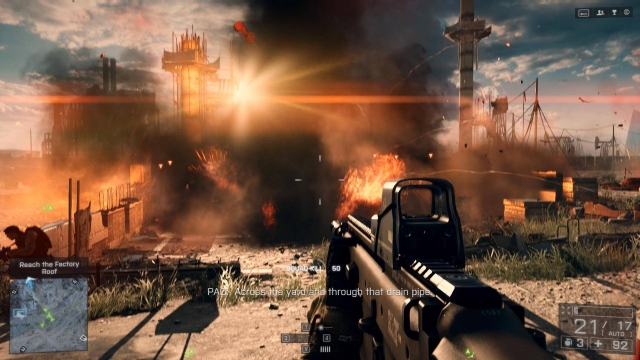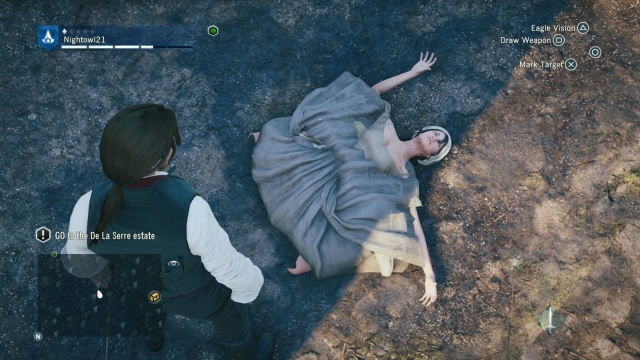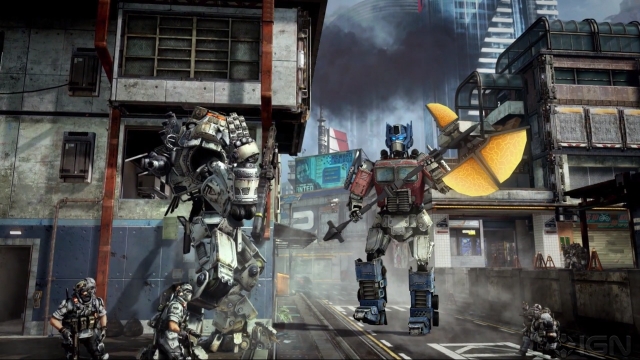
Broken, Bruised and Battered: The Class of 2014
Picture it: you go to see The Hobbit: The Battle of Five Armies in the cinema. You’re enjoying the movie, as is intended, when all of a sudden Bilbo’s face practically implodes and loses all of its skin; leaving only his eyes, hair and teeth. It pops back into normal shape after a few minutes though, and things carry on as normal. Then a little later, during the big battle scene, the film starts to judder as the frame rate takes a sudden drop, making it difficult to properly follow what’s going on. It’s pretty annoying, but all seems rather minor when the film comes to a screeching halt halfway through, forcing the cinema staff to restart the movie. Turns out this has been happening across the world, in a whole host of cinemas.
It sounds a little ridiculous, doesn’t it? It certainly seems unlikely that anything like this would happen in the film business - so why are we consistently facing these problems with videogames? Yes, yes, yes - drawing a comparison between these two industries is a tad ignorant; it’s wrong to assume they are, and should be, run in the same way. Plus, the technical difficulties that come with testing a game are obviously more strenuous than with a movie. Regardless, I’m not sure if that means the end products should be of a different quality. Yet here we are, in 2014, with big-name videogames that are released in shoddy condition.

My issue with this is less to do with my disappointment in relation to specific games, but rather my concern for the industry as a whole. That doesn’t mean I won’t hold up examples here; I’ve already done that really, obviously earlier referring to the plague of issues that have recently hit both Assassin’s Creed: Unity and Far Cry 4. Two huge games from once-fan-favorite publisher Ubisoft. The fact that I feel the need to say ‘once’ there is sad but true; much of the confidence hardcore gamers once had in Ubisoft has begun to evaporate with consistently rushed (and, on a different note, rather ‘samey’) products. Of course, it’s important to highlight that this perceived ‘reputation’ is unlikely to stretch outside of the core gaming audience.
It’s the CoD effect: the games will sell copies regardless. The names are too powerful, the brands too big. For the gamers who are big AC fans but play little else (they’re surprisingly plentiful), Ubisoft is likely only a name that pops up at the start of the game. It’s easy to forget that many gamers don’t understand the link between game, developer and publisher. So for those gamers, the issues plighting their game will probably come as more of a shock than for those with ‘inside knowledge’. Really, it’s these more casual players that Ubisoft, and any big name publisher, needs to worry about. If they lose faith in the product, and its technical reliability, then the publishers are going to have a problem selling as intended.

But what if that mentality spreads beyond individual titles, what if sloppy testing and short development times begin to have an effect on the reputation of videogames as a whole? That’s my primary concern. Poor release conditions are certainly not exclusive to the recent Ubisoft games; primary competitors like EA have been at it for a while now (Battlefield 4, anyone?). We’re at risk here of games being consistently released in poor condition. I remember days when a pre-order was a an obvious thing to do, there was no such thing as the ‘post-release window’ where games would have to get over a temporary moment of ineptitude.
It’s a sad reality of the modern videogame business model - for big publishers, at least. In fact, it’s not just technical issues that arise shortly after release, but a simple lack of content is becoming more and more regular. Titanfall of 2013 was a great mechanical game with a serious lack of stuff to do. Skip ahead one year and Titanfall is brimming with maps, modes and customisation; it’s almost a different, definitely much better, game. For gamers who don’t play regularly, but feel the urge to invest in a new franchise, an introduction like that presented by Titanfall does the game no favours. They, and more serious gamers with too much to play, are unlikely to revisit the game constantly just to see what little bit of content has been added, and therefore unlikely to purchase in the same vein again.

With games like those mentioned, what we have here are early cracks in a previously rather solid wall. It feels like an over-reaction to compare the situation to the videogame crash of 1984, but poor quality games were a large part of the issue then, and broken/incomplete games are steadily becoming just as much of an issue now. The upside is that most of the issues I’ve mentioned are fixable, and indeed the publishers go to seemingly rigorous lengths to fix them. Surely though, it would be a lot better for everyone if more time and money was spent eliminating the problems before the games are released to the public?
Perhaps I’m not savvy to some ingenious long term business plan, but to me it seems like good business sense to release a quality product that at least meets people’s basic expectations. Functionality is one of those basic expectations within the world of videogames, and while sub-30fps framerates and missing faces aren’t exactly game-killers, they’re indicative of a downward spiral within the industry as a whole. This needs to end, and it needs to end soon before more casual gamers start to lose faith in the products that they’re purchasing. We hardcore types, meanwhile, need to continue to encourage committed game design and criticise bad practice. If games continue to disappoint, then people are going to stop buying them, and nobody wants to see that.













COMMENTS